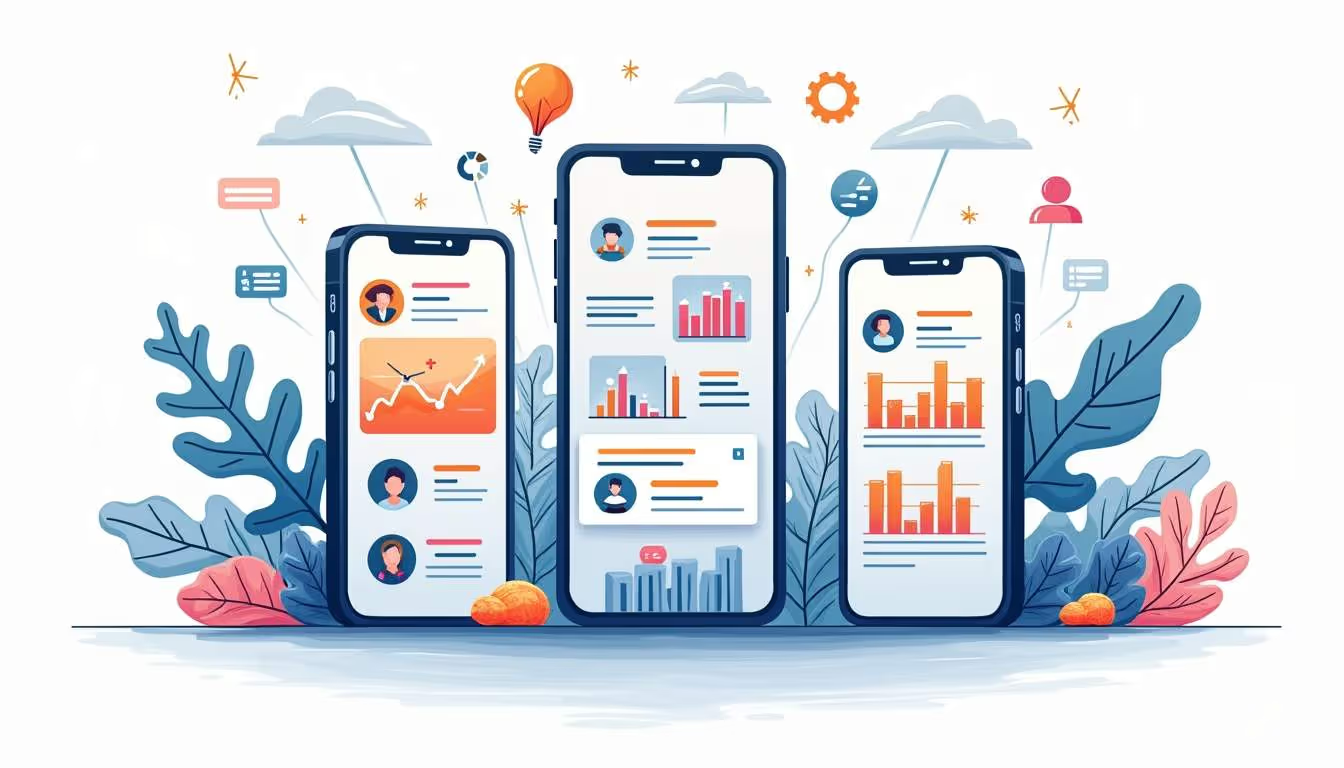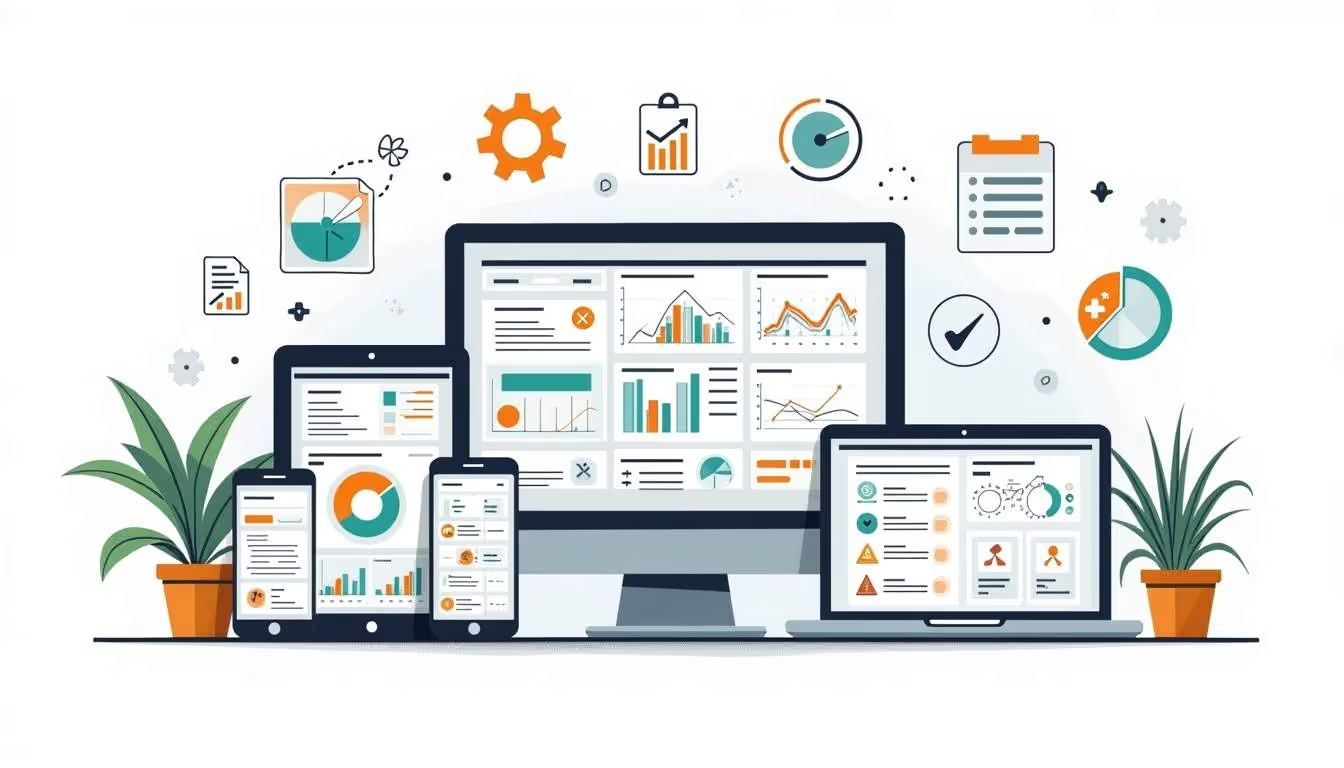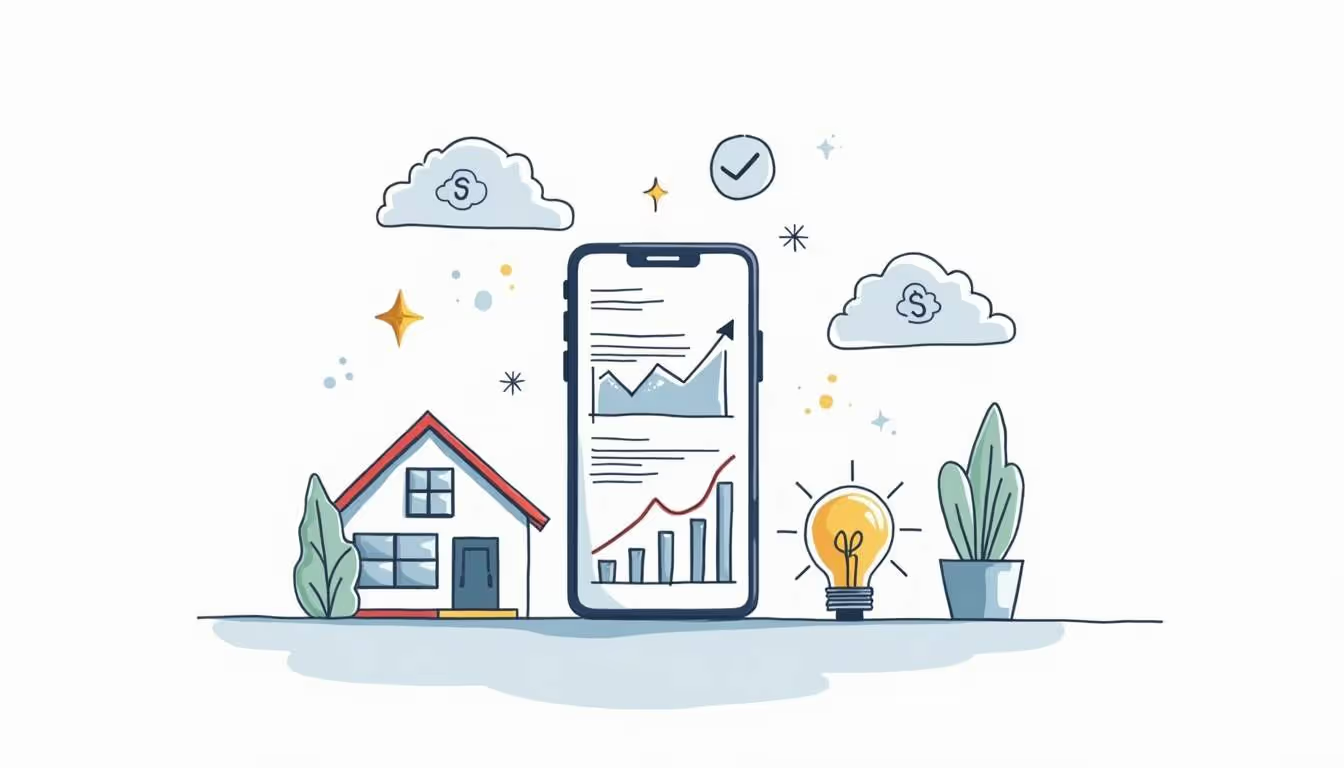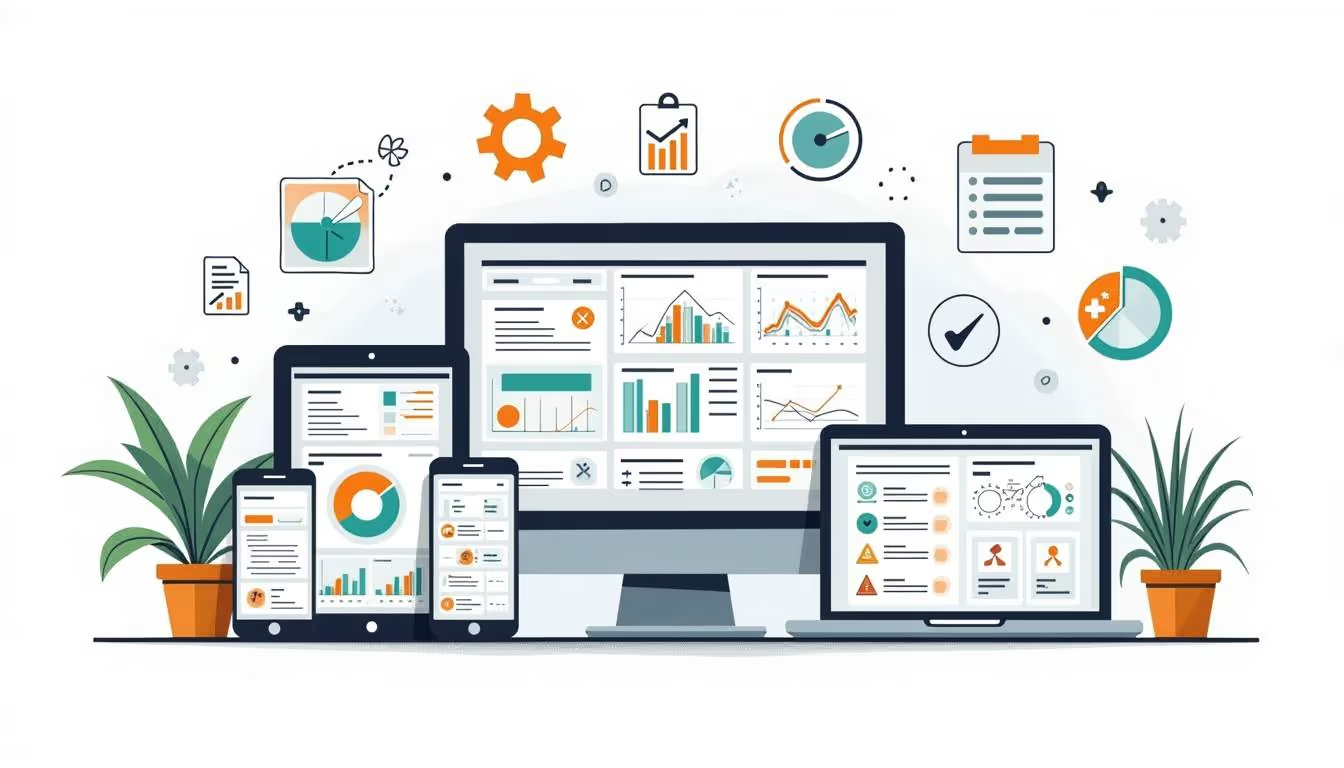Top Estate Management Software Mobile Apps for Streamlined Operations
In today’s fast-paced real estate industry, efficiency and seamless communication are paramount. With nearly 89% of property buyers starting their journey online, the demand for advanced digital tools in estate management has never been greater. Mobile applications tailored for estate management are transforming how property managers, leasing agents, and owners operate, driving innovation and improving operational workflows.
This article explores the top estate management software mobile apps that are revolutionizing the industry. It also delves into the latest market trends, expert insights, and how these apps contribute to streamlined property management operations.
The Growing Importance of Mobile Apps in Estate Management
The global real estate software market is projected to reach approximately $20 billion by 2025, underscoring the increasing reliance on digital solutions to manage properties effectively. Mobile apps play a critical role in this transformation, offering property managers real-time access to essential tools and data from anywhere.

One of the key drivers behind this growth is the significant improvement in communication and task management reported by property managers. According to a 2024 survey by AppFolio, over 80% of property managers who utilize mobile applications experience enhanced efficiencies in these areas. This improvement translates to faster response times, better tenant satisfaction, and smoother day-to-day operations.
Why Mobile Apps Matter for Property Managers
Property managers juggle numerous responsibilities, from leasing and maintenance coordination to financial reporting and resident engagement. Mobile apps consolidate these functions into a single platform, reducing the need for multiple tools and minimizing errors.
Moreover, with the rise of AI-driven solutions like RealPage’s Lumina AI Workforce, which launched in June 2025, property management is becoming more intelligent and automated. Lumina AI integrates intelligent agents across leasing, finance, and resident engagement, helping managers anticipate issues and optimize workflows without manual intervention.
Additionally, the integration of mobile apps with IoT (Internet of Things) devices is revolutionizing how property managers monitor and maintain their properties. Smart thermostats, security systems, and energy management tools can now be controlled remotely, allowing for proactive maintenance and energy efficiency. This not only enhances the living experience for tenants but also significantly reduces operational costs for property owners. As a result, property managers are increasingly leveraging these technologies to create a more sustainable and responsive living environment.
Furthermore, the use of mobile apps facilitates better data analytics and reporting capabilities. Property managers can easily track key performance indicators (KPIs) such as occupancy rates, rental income, and maintenance costs in real time. This data-driven approach enables them to make informed decisions, identify trends, and implement strategies that drive profitability. The ability to generate comprehensive reports with just a few taps on a mobile device empowers property managers to present actionable insights to stakeholders, enhancing transparency and fostering trust in their management practices.
Key Features That Drive Efficiency in Estate Management Apps
While each app offers unique capabilities, several core features are essential for streamlining estate management operations. Understanding these features helps property managers select the right tools to meet their specific needs.

Real-Time Communication and Task Management
Effective communication between property managers, tenants, and maintenance teams is crucial. Mobile apps that provide instant messaging, push notifications, and task assignment capabilities enable quick resolution of issues and keep everyone informed.
As highlighted by AppFolio’s research, improved communication through mobile apps directly correlates with increased operational efficiency, making this a non-negotiable feature for any estate management app. Moreover, many of these platforms offer integrated calendars that allow all parties to track deadlines and appointments, ensuring that no task falls through the cracks. This level of organization not only enhances productivity but also fosters a sense of community among tenants, who feel more engaged and valued when they can communicate easily with management.
Automated Workflows and AI Integration
Automation reduces manual work and the risk of human error. Features like automated rent reminders, maintenance scheduling, and AI-driven insights help managers stay ahead of their responsibilities.
RealPage’s Lumina AI Workforce exemplifies how AI integration can transform property management by coordinating multiple operational facets intelligently and proactively. For instance, AI can analyze historical data to predict maintenance needs before they arise, allowing property managers to address potential issues before they escalate. This predictive capability not only saves time and resources but also enhances tenant satisfaction by ensuring that properties are well-maintained and any disruptions are minimized.
Financial Management and Reporting
Accurate financial tracking is vital for profitability and compliance. Mobile apps that offer accounting tools, expense tracking, and customizable reporting provide managers with real-time visibility into their portfolio’s financial health.
These capabilities empower managers to make informed decisions quickly, improving overall business performance. Additionally, some apps incorporate advanced analytics that can forecast cash flow trends and identify potential financial pitfalls, enabling proactive management of resources. By providing detailed insights into income and expenses, these tools help managers optimize budgets and allocate funds more effectively, ensuring that properties remain profitable in a competitive market.
Tenant and Lease Management
Managing leases, screening tenants, and handling renewals are core functions of estate management. Mobile apps that streamline these processes reduce administrative overhead and enhance tenant satisfaction by providing self-service options.
Features like digital lease signing and online applications simplify workflows and attract tech-savvy renters. Furthermore, many apps now include tenant portals where residents can access important documents, submit maintenance requests, and communicate with management at their convenience. This not only improves the tenant experience but also allows property managers to gather valuable feedback and insights directly from their residents, fostering a more responsive and adaptive management approach that can lead to higher retention rates.
Future Trends in Estate Management Software
The estate management software market is evolving rapidly, driven by technological advancements and changing industry demands. According to market reports, the sector is poised for significant growth, with projections estimating a market size of USD 54.16 billion by 2032.
Several trends are shaping the future landscape of estate management apps:
1. Increased AI and Machine Learning Adoption
AI-powered platforms like Lumina AI Workforce are just the beginning. Future apps will likely incorporate more predictive analytics, automated decision-making, and personalized tenant engagement to optimize operations further.
2. Enhanced Mobile-First Experiences
As mobile device usage continues to dominate, estate management apps will prioritize mobile-first designs, ensuring full functionality and ease of use on smartphones and tablets.
3. Integration with Smart Building Technologies
Integration with IoT devices and smart building systems will enable real-time monitoring of property conditions, energy usage, and security, providing managers with actionable insights directly through their mobile apps.
4. Focus on Sustainability and Compliance
Future software solutions will likely incorporate tools to help property managers track sustainability metrics and ensure compliance with evolving regulations, supporting greener and more responsible property management practices.
Conclusion
Mobile estate management software apps are indispensable tools for modern property managers aiming to streamline operations, improve communication, and enhance tenant experiences. With the real estate software market rapidly expanding and innovations like AI-driven platforms emerging, adopting the right mobile app is crucial for staying competitive.

Apps such as ProValet, AppFolio, Buildium, RealPage Lumina AI Workforce, and Yardi Breeze offer robust features that address the diverse needs of property managers. By leveraging these technologies, managers can optimize workflows, reduce administrative burdens, and deliver superior service to tenants and owners alike.
As the industry continues to evolve, staying informed about the latest software trends and capabilities will empower property management professionals to harness the full potential of digital tools and drive sustained success.








